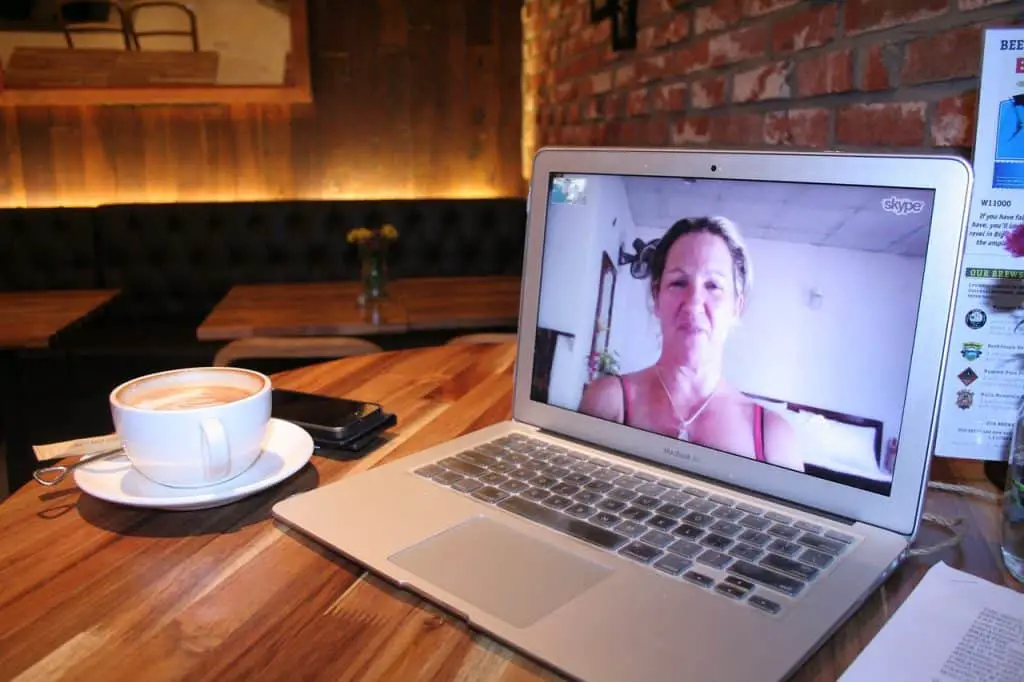
The debate of whether you should cover your webcam or not has been rampant due to the numerous surveys concerning digital privacy. The fact that a password does not protect most internet-connected webcams makes them more accessible to hackers.
Your computer connected camera can be vulnerable to hackers by clicking a bad link, downloading a file with malware, and many other methods. This, combined with a sea of substantial research, compels the question of whether covering your laptop camera is necessary or just a result of paranoia.
Why Cover a Laptop Camera?
While precaution is always better than cure, the following reasons will compel you to cover your laptop camera.
Recommended By The FBI
An FBI director, James Comey, has openly stated that he covers his webcam and urges citizens to do the same. During a conference at the Center for Strategic and International Studies, Comey revealed that covering your camera is a sensible thing to do regardless of your profession.
Since it has become increasingly easy to gain access to a person’s personal information, he claims that being cautious about your safety and security is the smart thing to do.
Advised By Academicians
In addition to an FBI director, many academics have advised the youth to take precautions by covering their laptop webcams. A senior researcher at the Munk School of Global Affairs based at the University of Toronto stated that cyber hacking is growing substantially, and it is extremely common.
The researcher, John Scott-Railton, stated that hackers are notorious for trading access to computers that are already hacked. They use this as a way to obtain sensitive information from political dissidents, journalists, and other people belonging to this line of work.
Additionally, technology experts conducted research in 2015, which revealed the frequency at which hacking occurs. This study was conducted by the Digital Citizens Alliance, which concluded that hacking is a growing problem as many people are being spied on through their laptop webcams. This has been an imminent problem, particularly among young women.
Hacking Is More Common Than You Think
Many people assume that covering your camera is a result of unnecessary paranoia. However, this common misconception is overruled by the sheer volume of hacking cases and the number of victims falling prey to the consequences.
This is usually done through the use of a remote administration tool (RAT), which allows hackers to send their victims an email with a link to a video, image, or website. In this way, users are tricked into downloading malicious software onto their laptops without being aware of it.
Wikileaks also revealed that the CIA had used similar methods to hack into laptops, smartphones, and even SMART TVs in order to spy on people. A report in 2015 also showed that a woman’s webcam was hacked while she was watching Netflix.
Increased Use Of Laptops
In a world that is deeply interconnected and technologically advanced, numerous people belonging to different professions require a computer to function, thereby significantly increasing the use of laptop computers.
Furthermore, many companies are hiring contract employees that work remotely, and this warrants the increased requirement for laptops. Freelancers have seen a growth in opportunities with the emergence of marketplaces online. These factors contribute to the widespread use of laptops, which can be hacked with ease.
Why Cover Laptop Camera With Tape?
As we have already mentioned, hacking has become extremely common. This means that a hacker with access to your webcam has a complete insight into your activities. This major breach of privacy can be avoided by simply covering the webcam.
While this is the simplest and easiest solution, there are many other precautions you can take to avoid giving hackers access to your laptop camera.
Black Electrical Tape
This is the simplest and most effective way to ensure that your privacy is not compromised. If a single layer does not seem good enough, doubling up is always possible. Alternatively, if you are not a fan of the tape residue on your webcam, investing in a sliding lens cover can offer a better replacement. All you need to do is slide over your webcam to cover it while it is not in use.
Duct Tape
You can never go wrong with using duct tape, as it is extremely effective. It offers complete obscurity as it does not allow anything to get through the camera. The pragmatic qualities cannot be overlooked amidst the sticky residue on your camera as this effect fades with time.
Avoid Clicking Suspicious Links
Hackers are infamous for using attachments in emails to plant malware onto your computer. To avoid this, refrain from opening emails from people you are not familiar with. This also applies to suspicious ads on social media and long links. The compromise of your privacy can be completely avoided by simply being aware of the attachments you open.
Antivirus Software
Antivirus software is the best way to avoid being hacked as it not only offers protection, it also destroys any incoming threats. Cautious browsing on the internet can still cause viruses to creep into your system. Antivirus software offers complete protection without any risks.
Turn Off The Webcam
Completely turning off your webcam is possible by simply messing around with your computer settings. This will save you significant worry and paranoia as there is no possible way that hackers can access your webcam if it is completely off. This method works perfectly for someone who is under no compulsion to use their laptop cameras.
To Sum Up
Covering your laptop camera is no longer a symbol of paranoia, it is a necessity. With the rise of hackers and the ease with which they can invade your privacy, the most we can do is take the necessary precautions to maintain our safety. The tips provided can also be used to stay protected and off the radar of malicious hackers. Your safety online should be your priority.
More Articles:
